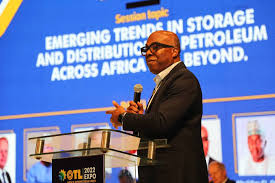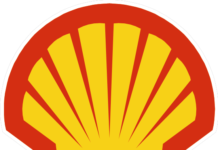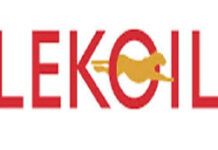As MDGIF Calls for Sustained Government Support to Enhance Nigeria’s Gas Infrastructure
The Nigerian Midstream and Downstream Petroleum Regulatory Authority (NMDPRA) says inefficiencies and cost challenges are affecting Nigeria’s petroleum distribution infrastructure.
This is as the Midstream and Downstream Gas Infrastructure Fund (MDGIF) at the Nigerian Midstream and Downstream Petroleum Regulatory Authority (NMDPRA), recommended the critical need for continued government incentives to draw investments into gas processing, transportation, storage, and distribution. The recommendation is coming on the sideline of the progress made on the back of the recent disbursement of ₦122 billion aimed at bolstering Nigeria’s gas infrastructure.
Mr Ogbugo Ukoha, Executive Director of Distribution, Storage System, and Retail Infrastructure of NMDPRA and Mr. Oluwole Adama, Executive Director of MDGIF disclosed this at the just conluded OTL Africa Summit on in Lagos.
Ukoha emphasised the urgent need for increased investment in the country’s coastal and port facilities to resolve these issues.
He spoke on the theme “Nigeria Fuels Congress: Issues in Pricing, Policy, Profits and Market Access”, highlighted the role of enhanced infrastructure in reducing operational costs.
According to him, current port infrastructure limits the capacity to receive larger vessels, which raises costs significantly.
“The ability to accommodate LR1 vessels that can transport 90,000 to 150,000 metric tonnes is severely restricted. In contrast, we can handle only up to 60,000 tonnes at MRS,” Ukoha explained.
He further illustrated the logistical challenges, saying: “When we imported petrol directly from Rotterdam, we could discharge 90,000-ton vessels directly.
“Now, vessels must anchor in Lagos for ship-to-ship transfers, leading to smaller cargo deliveries and multiple voyages, which are costly.”
Ukoha pointed out that charter costs could range from $50,000 to $100,000 per day, with increased operational inefficiencies.
““These are inefficiencies we can eliminate. It’s not just about the availability of coastal vessels; the draft of the channels is also insufficiently deep. All these factors contribute to increased costs,” he said.
He said that to mitigate these challenges, “NMDPRA is advocating for investments in coastal infrastructure, including dredging and port upgrades, to facilitate larger vessels and lower transportation costs.”
Ukoha referenced a recent inspection that highlighted infrastructure limitations.
“Just days ago, we observed vessels queued at Escravos due to one vessel grounding, causing significant delays.
“Ports like Warri, Koko, and Oghara have a mere 6.5-meter draft at their entrances, posing risks of grounding.”
He stressed that the solution lied in securing the right investments and funding.
He urged commercial banks to collaborate with investors in this sector, stating that proper funding could significantly reduce operational costs and improve efficiencies.
Ukoha pointed out that areas like Lekki, with Pinnacle and Dangote’s port facilities, were among the few equipped to accommodate large vessels.
He added that the Apapa Jetty urgently needed upgrade to meet operational demands.
“Only in Lekki do we have Single Buoy Mooring (SBM) facilities that can receive MR1 vessels. We need more of such facilities, and substantial improvements are required at Apapa Jetty,” he said.
Highlighting additional inefficiencies, Ukoha lamented that distribution largely relied on trucking, which was costly and risky.
He called for investment in pipeline infrastructure, noting, “pipelines are the most efficient means of transporting products globally, and we need to return to that.
” Rail transport also offers opportunities, but we currently depend heavily on trucks, which is unsustainable.”
He shared a tragic example of the dangers of truck transport, referencing a mass grave in Jigawa, containing over 70 unidentified victims of trucking accidents.
“This is a tragic reality, and we need to encourage more investment in pipelines,” he stated.
Ukoha also emphasised the role of technology in combating petroleum diversion, particularly near Nigeria’s borders.
“With extensive borders, the risk of petroleum product diversion is high. Although monitoring borders isn’t NMDPRA’s primary role, we collaborate closely with Customs under Operation Whirlwind.
“The regulator is considering mandating automated trucks for better visibility of petroleum product movements,” he added.
He called for the full automation of licensing operations within the regulatory framework, and encouraged marketers to adopt these technologies for greater transparency.
On retail outlets, Ukoha suggested incentivising customer-centric and profitable retailers to foster industry improvements.
He said: “Before the unbundling of the Department of Petroleum Resources (DPR), retail outlets were required to store diesel, kerosene, and petrol.
“With the shift towards LPG and CNG, we need to encourage diversification in retail offerings.”
Discussing the NMDPRA’s plan for a national strategic petroleum reserve, Ukoha outlined a recent regulation that established a 60-day storage capacity for all petroleum products.
“This reserve aims to stabilise supply and prices during emergencies, such as the recent floods threatening northern Nigeria’s product supply.
“NNPC has significant storage capacity in northern Nigeria, and we look forward to collaborating with them and other stakeholders on this initiative,” he said.
According to Ukoha, strategic reserve regulation is not just about capital lockup, but one that aims to create a secure supply chain resilient to unforeseen disruptions.
Meanwhile,The Midstream and Downstream Gas Infrastructure Fund (MDGIF) recommended the critical need for continued federal government incentives to draw investments into gas processing, transportation, storage, and distribution.
Mr. Oluwole Adama, who spoke on the theme “New Energy Order: Updates on Gas, CNG, and LPG,” highlighted the importance of a supportive regulatory framework to ensure the growth and stability of the gas sector.
He noted that sustained incentives from the government would be instrumental in fostering a robust environment for private-sector investment in critical infrastructure for Compressed Natural Gas (CNG), Liquefied Petroleum Gas (LPG), and overall gas sector improvements.
“The injection of funds is only a step; consistent policy support and incentives will pave the way for increased private investment, enhancing our domestic gas value chain and promoting Nigeria’s economic growth,” Adama stated.
The ED of MDGI underscored the importance of a comprehensive approach that integrates policy, infrastructure, and technology investments to fully realize Nigeria’s gas potential.
Adama stated, “Nigeria is sitting on gas, and in line with the global energy order of cleaner fuels, we must position our gas as the energy transition fuel.” He pointed out that the country, endowed with more gas than crude oil, needs to leverage this resource effectively.
Highlighting the vision of the MDGIF, the ED stated that the Fund is focused on financing projects related to Liquefied Natural Gas (LNG), Compressed Natural Gas (CNG), Liquefied Petroleum Gas (LPG) processing plants, gas transportation and distribution, bulk storage and terminals, and capturing gas flares in alignment with the federal government’s net-zero carbon commitment.
He noted that the key goal of the Fund is to enhance local utilization of gas, particularly at the retail level, targeting widespread end users through initiatives like mother-and-daughter stations.
According to him, projects to be funded must align with Nigeria’s National Gas Expansion Program (NGEP), energy security, and the strategic goals for gas utilization.
He added that the projects must possess economic value, be commercially/technically viable, and align with Sustainable Development Goals (SDGs) and Environmental, Social, and Governance (ESG) standards.
“We focus on promoting and supporting viable projects while leaving the execution to project owners to drive gas production and utilization,” Adama explained.
“We have already announced six project promoters who met our funding criteria, ensuring that these projects are positioned to boost the domestic gas market and advance our energy transition objectives.”
As MDGIF is primarily an enabling body, its role is not to initiate projects but to provide the financial and strategic backing needed to encourage private-sector investment and optimize Nigeria’s gas resources.,
Adama elaborated on the MDGIF’s recent disbursement of ₦122 billion, which aims to close the infrastructure gap across Nigeria.
He said, ” This investment will be supported by a 1.5% levy on wholesale petroleum product prices and is expected to generate income from equity investments made by MDGIF project partners, as well as penalties from gas flaring across oil fields.
“Our primary objective is to ramp up the use of gas through various projects and attract investors by alleviating their burden from commercial bank interest rates.
“The MDGIF is also working to secure multilateral and bilateral funding for gas infrastructure development. The organization prides itself on its strong corporate governance, which is crucial for attracting both foreign and local partnerships, ” he noted.
Adama stated, “We have received considerable encouragement and commendation for our efforts to enhance infrastructure in the gas sector. Our processes are guided by transparency, utilizing top consultants for due diligence to ensure funds are disbursed effectively.”
The MDGIF has announced six project promoters, as the fund does not initiate projects but promotes existing ones for execution.
” Among the key projects is a 5,000 MT butane storage facility, expected to support 13,200 MT of NLNG, set for completion by the end of the year.
Another significant project by one of the beneficiaries of the recent disbursement is targeting the establishment of 20 mobile CNG refueling stations, which will help reduce dependency on traditional fuels as more partners convert their vehicles to CNG.
Mr. Adama further encouraged the private sector to ramp up investments in Nigeria’s gas sector, highlighting its potential as a key driver for the nation’s energy needs.
He noted that the country’s current gas pipeline network covers less than 10% of what is required to meet national demand, underscoring the urgency for accelerated infrastructure development.
“Our gas infrastructure will remain crucial for at least the next 20 to 30 years in meeting Nigeria’s energy needs,” Adama stated, calling on stakeholders to invest more and lead the expansion process.
He emphasized that a comprehensive and efficient gas network is essential for sustainable energy transition, urging the private sector to take bold steps to advance gas infrastructure and solidify Nigeria’s energy future.

























